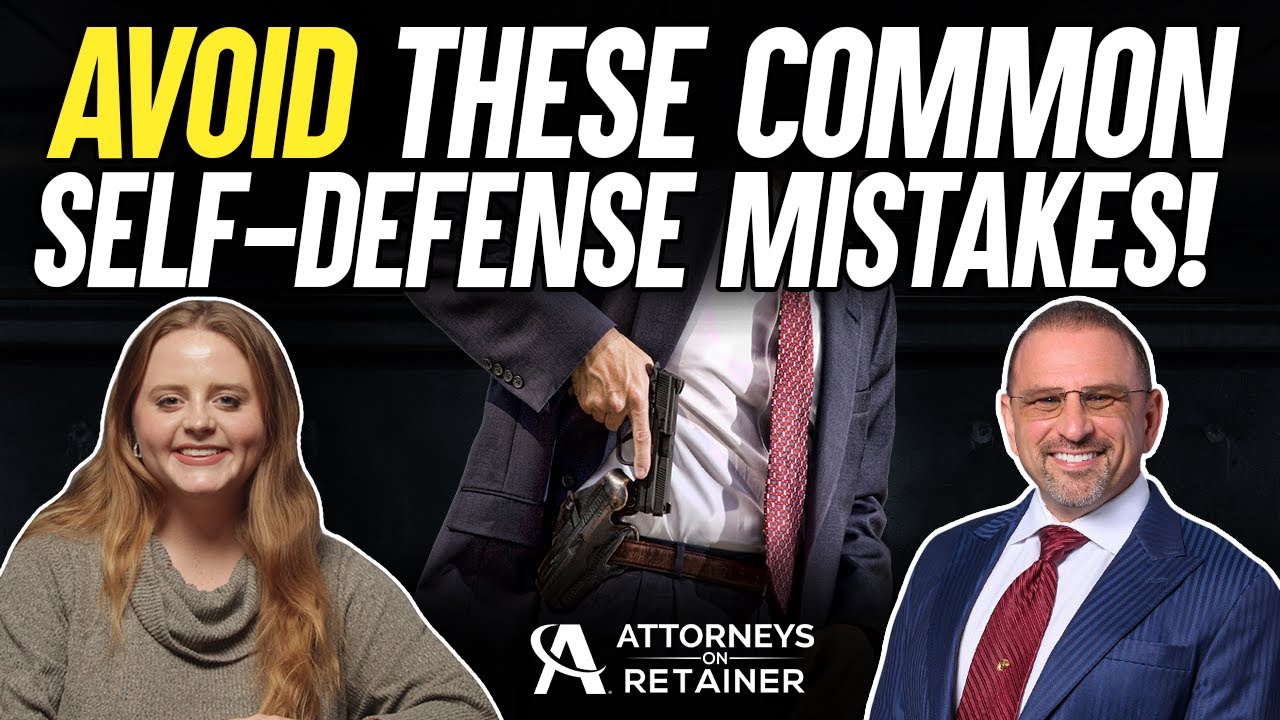AOR Explains The Importance Of Having Attorney-Client Privilege!
July 8, 2024
We have been getting a lot of questions about attorney-client privilege, especially when it involves emergencies where someone has to defend themselves. This topic comes up a lot in our work, and it is essential to know why this privilege matters. Today, I want to explain what attorney-client privilege is and why it is crucial if you ever find yourself in a stressful legal situation, like a self-defense case.
Key Points:
- What Is Attorney-Client Privilege?
- Why Attorney-Client Privilege Matters
- The Risk with Non-Lawyer Services
- Why It is Critical in Self-Defense Situations
- The Strongest Legal Privilege in the U.S.
- Final Thoughts
What Is Attorney-Client Privilege?
Let us start by clearing up a common confusion. People often mix up two things that are related but not exactly the same: attorney-client privilege and an attorney’s ethical duty of confidentiality. Both are about keeping things private, but they work in different ways.
-
Attorney-Client Privilege: This is a legal rule that stops lawyers from being forced to testify about what their clients have told them. It is the client’s right, which means the client can stop the lawyer from having to share what was said. Without this rule, anything you tell your lawyer could be used against you in court. That would make it difficult to get proper legal help because you might be too scared to tell your lawyer everything.
-
Ethical Duty of Confidentiality: This is a rule that all members of a law firm—lawyers, paralegals, and even the people who answer the phones—have to keep everything about a client’s case private. It does not matter if the information is already known or if a family member asks about the case; we cannot share anything unless the client specifically says it is okay.
“If you think about it, if we did not have such a privilege, well then anything that a client said to a lawyer would be discoverable.”
Why Attorney-Client Privilege Matters
Attorney-client privilege is important because it allows you to talk to your lawyer honestly without worrying that what you say will be shared. This protection kicks in even before you officially hire a lawyer. So, if you call us in an emergency and we give you legal advice, that conversation is safe, even if you have not signed any papers yet.
“If this were discoverable, in other words, if a prosecutor could force us to answer the question, ‘Tell me everything that your client told you,’ you could see very quickly clients would not be able to tell their attorneys anything.”
Imagine if a prosecutor could force your lawyer to tell the court everything you said. You would not be able to get the help you need because you would be too scared to talk openly, ask questions, or get advice. This would basically take away your right to have a proper defense, which is protected by the Sixth Amendment.
The Risk with Non-Lawyer Services
“Our competitors in the industry do not have a law firm model. Instead, they have an insurance-based model… and who answers the phone when you call one of those companies in a self-defense or emergency situation? A non-lawyer.”
Here is where things get a bit tricky—and kind of scary. Some self-defense insurance programs tell you to call them first after you have been in a self-defense situation. But here is the problem: the person you talk to usually is not a lawyer. This means that anything you say to them can be used against you in court because the conversation is not protected by attorney-client privilege.
To put it simply, if you call a hotline that is not run by a lawyer and say, “I was just involved in a shooting,” that information can be used as evidence. Prosecutors can request the records and use what you said to try and prove their case against you. They can even make the person who took your call testify in court about everything you told them. This can really limit the ways your defense attorney can help you, making it harder to keep you out of prison.
Real-World Example: The Alan Colie Case
A real-world example of this risk is what happened in the case of Alan Colie. In his case, the prosecutor sent a subpoena to the United States Concealed Carry Association (USCCA) to try to get all the records and communications they had with Mr. Coley. The prosecutor knew there was no attorney-client privilege to protect what was said, so they tried to get as much information as they could from USCCA. Luckily, the court did not approve this subpoena, but it shows how far prosecutors will go to get this kind of information. If the subpoena had been approved, it could have seriously affected the defense.
Why It is Critical in Self-Defense Situations
Attorney-client privilege is super important in self-defense situations, especially when you have to make quick decisions. If you call our firm right after a self-defense incident, the first thing we do is make sure you can talk to us privately. This is key because if someone else overhears what you are saying, they are not protected by attorney-client privilege. Everything you tell us stays safe, which can make a huge difference if you are facing criminal charges.
“If you are speaking to me and other people can overhear what you are saying, those people are not covered by the attorney-client privilege.”
On the other hand, if you are talking to someone who is not a lawyer, like an insurance representative, anything you say could limit your defense options later. For example, if you say, “I was in fear for my life,” you might be stuck with a self-defense argument. But in reality, there could be other legal defenses that might work better for your situation.
The Strongest Legal Privilege in the U.S.
In the United States, attorney-client privilege is one of the strongest protections you can get. It is even stronger than the privacy you have with your doctor, spouse, or religious leader. Without this privilege, you would not be able to get proper legal help, and the justice system would not be reasonable. It is a key part of your right to a fair trial and makes sure your lawyer can give you the best defense possible.
“The attorney-client privilege is the strongest legal privilege that exists in the United States of America.”
Final Thoughts
Attorney-client privilege is not just a fancy legal term or a minor detail; it is a crucial right that can make or break your case. If you find yourself in a self-defense situation, this privilege is what allows you to speak openly with your attorney without the fear that what you say could be used against you. This open communication lets us give you the best advice possible and helps ensure that you get a fair trial.
Facing criminal charges is stressful, but understanding attorney-client privilege can make a big difference. It allows your lawyer to build the strongest possible defense for you, often long before you even step into a courtroom. So, if you ever end up in a self-defense incident, remember this: Your first call should always be to a lawyer who can provide the protection of attorney-client privilege. This could be the deciding factor between winning your case or facing a tougher battle in court.
After a self-defense incident, it is important to have the right legal help right away. Attorneys On Retainer makes sure that from the moment you call us, everything you say is kept private. Our program gives you access to experienced attorneys who use this privilege to protect your rights. Do not leave your future up to chance, call 866-404-5112 today to join AOR and get the protection and peace of mind you need.



